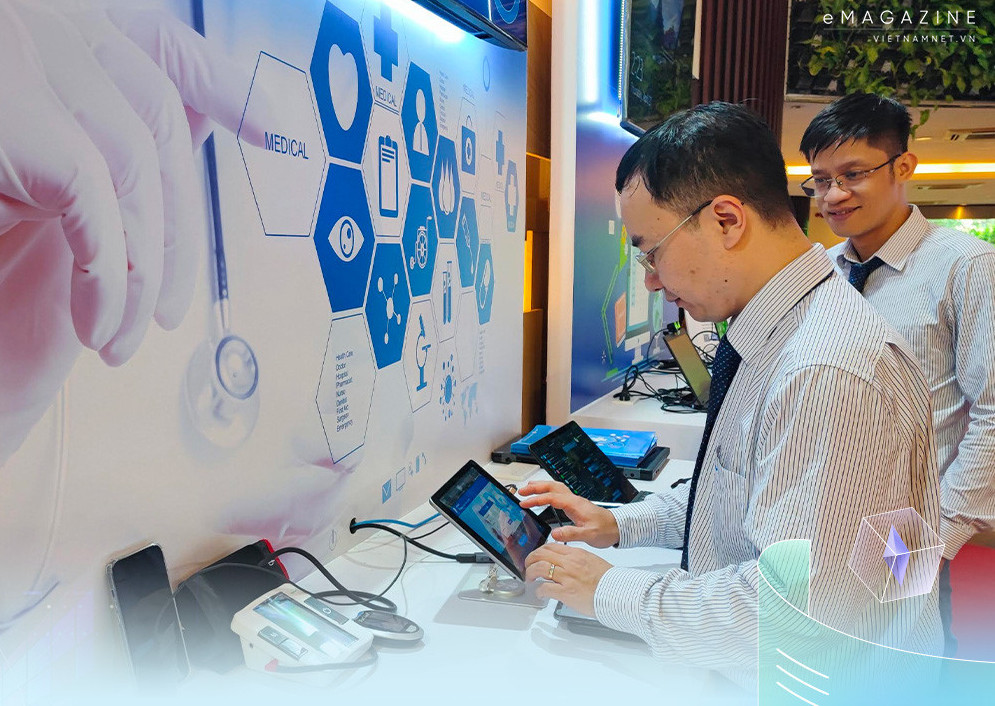
In the 1970-1980s, Vietnam fell into a serious crisis, which was partially the consequence of the fierce war and of the centrally run subsidized economy.
In such conditions, it was understandable why the decision of the posts and telecommunications sector to shift from analog to digital technology raised controversy.
Some experts believed that Vietnam with difficulties from all sides, should be satisfied with the analog network, which was still ‘modern’ compared with other socialist countries. They thought that it would be better for Vietnam to save money by making the best use of a German switchboard system transferred to Vietnam.
However, the leaders of the posts and telcommunications sector were determined to go another way. They decided that Vietnam needed to choose digital and go straight to modernization of both technology and network capacity.
It was a strategic and daring decision, if noting that 98 percent of the world’s fixed line network was using analog technology, and only a few countries then began shifting from analog to digital. But Vietnam still decided to be among the remaining 2 percent.
To get money to invest in technology, the posts and telecommunications sector cooperated with Australia to develop international telecommunications. As the business model showed its effects, Vietnam decided to open a BCC (business cooperation contract) with Swedish Comvik to create the mobile network of MobiFone.
In terms of local telecommunication, Vietnam signed a BCC with Japan worth $200 million, a contract with France worth $500 million, and with South Korea worth $40 million.
With the wise strategy, Vietnam could modernize the network and build powerful telecom groups later.
In addition to the international cooperation mechanism, the Posts and Telecommunications Department asked for the permission to apply the ‘self-borrowing, self-paying’ regime, rather than rely on the state budget.
Lessons from the digital revolution
International cooperation and the ‘self-borrowing and self-paying’ mechanism were the two most important keys for Vietnam’s postal sector to overcome the difficult period and go straight to digital technology.
Vietnam’s network digitization was even believed to be faster than some western countries at that time.
Experts, when reviewing the rapid development of the telecommunications sector, said Vietnam could escape the lack of money for investment and the bureaucracy with four strategic solutions.
First, it made a daring decision to go straight to modern technology, switching directly from analog to digital. This allowed it to go from backwardness to modernity within a short time.
Second, the postal sector was flexible in maintaining international cooperation to overcome the embargo, and chose diverse partners to take full advantage of capital and technology to build its networks and prepare human resources.
Third, in difficult circumstances, the ‘self-borrowing and self-paying’ mechanism application allowed the sector to have investment capital for development.
Fourth, the postal sector pays attention to developing the workforce for the industry.
Second renovation: digital transformation
Thirty five years after the first renovation, the telecommunication sector is facing a new problem. Telecommunication services have become saturated, which requires the postal sector to carry out a second reform.
The second renovation will be large-scale which changes the nature of telecommunications, thus opening up a huge new space for the telecommunications industry, which is much larger than the communication space.
Vietnam is one of the first countries in the world that issue national programs or strategies on digital transformation.
Digital transformation is a comprehensive transformation to the digital space. The movement goes at a rapid pace based on three pillars: digital government, digital economy, and digital society.
“All Vietnamese, from urbanites to rural area residents, from taxi drivers to vegetable sellers, now talk about digital transformation. It is not easy to create a new revolution that is known and applauded by all people. That is the great merit of MIC, both in terms of technology and communications,” said Mai Liem Truc, former general director of the Department of Posts.
